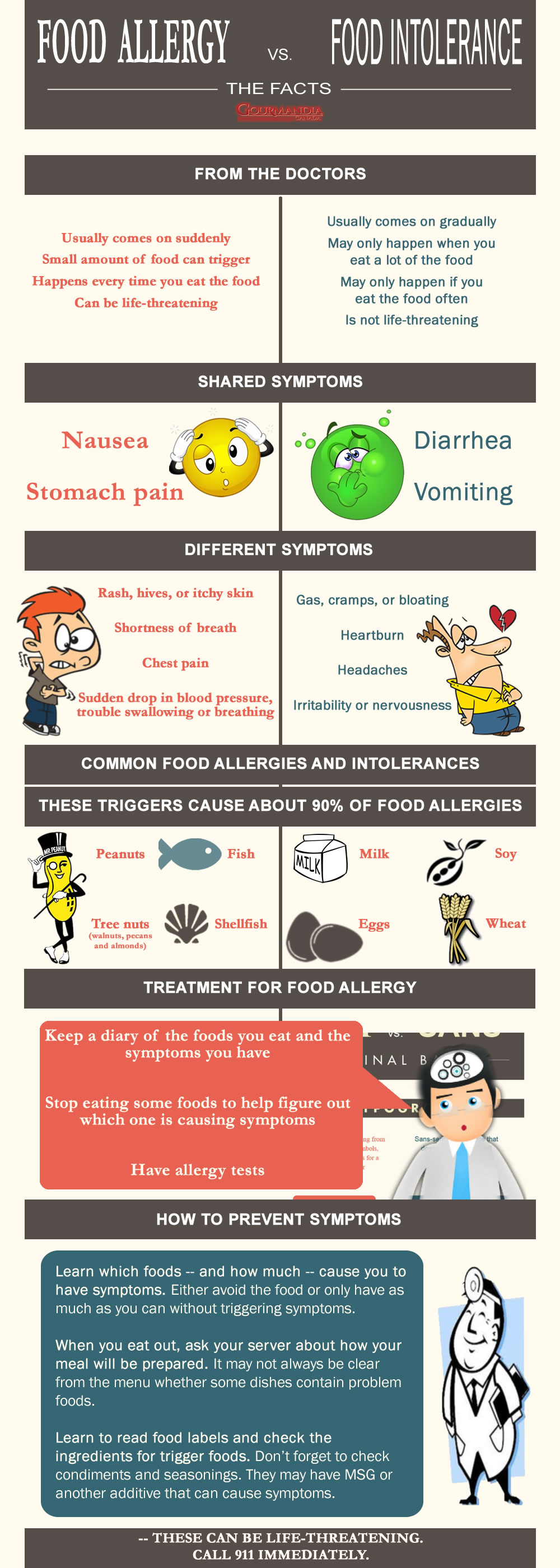
Adverse reactions to food are incredibly common, but the majority of these reactions are due to a food intolerance instead of a food allergy. The difficulty with determining the difference between the two is that there are similar signs that are shown when an adverse reaction to food occurs, therefore they are often confused.
The Main Difference
The most obvious difference between a food allergy and food intolerance is that an allergy causes the human immune system to affect different organs in the body such as the eyes or the skin and it cause an ample amount of different symptoms. There have been cases where a food allergy can prove to be severely life threatening. In comparison to this, a food intolerance will bring less severe symptoms and they are generally related to digestive issues such as vomiting or diarrhea.
How Do I Know if I Have an Allergy or an Intolerance?
The main way to determine whether you are suffering from a food allergy or if you have a simple intolerance to a particular food is the amount of time that it takes for the adverse reaction to occur. If you are allergic to a specific type of food, you will experience immediate and severe symptoms such as a tingling mouth, swelling of the face, and swelling of the tongue. In worst cases, anaphylaxis will force you to have breathing problems and incredibly low blood pressure.
In contrast, a food intolerance will not show as quickly and the symptoms will be more gradual than immediate. In the event of a food intolerance, you may be able to eat small portions of the food without your body showing any signs of discomfort. There are also steps that you can take in order to assist your body with digesting the food properly. The most common food intolerance, lactose intolerance, can be countered with the use of enzyme pills or by ingesting milk without lactose.
Should I See a Doctor?
If you find that you have either a food intolerance or a food allergy, it is advised that you speak with a medical professional to determine which illness you are suffering from. Your doctor will be able to either provide you with a nutritional plan to help you avoid the food that you have an intolerance to, or they will conduct an allergy panel to determine what it is that you are allergic to.